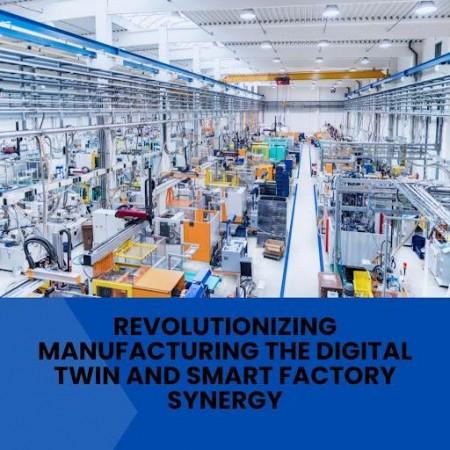
The Fourth Industrial Revolution is transforming manufacturing, and Kumar Rajiv Nayan has been at the forefront of this evolution. His research delves into the intricate role of digital technologies in streamlining industrial operations. By analyzing emerging trends, he provides valuable insights into the future of smart manufacturing. His latest insights explore how digital twins and smart factories are reshaping production, driving efficiency, and enabling sustainable practices.
The Power of Digital Twins in Modern Manufacturing
Digital twins have emerged as a revolutionary technology in the manufacturing sector. These virtual replicas of physical assets allow real-time monitoring, predictive maintenance, and process optimization. Companies leveraging digital twins have reported a 35% reduction in design costs and a 40% improvement in operational efficiency. Beyond cost savings, digital twins play a crucial role in sustainable manufacturing by reducing energy consumption and minimizing material waste.
Real-Time Monitoring for Enhanced Efficiency
The ability to monitor machinery and production lines in real-time is a game-changer. By integrating digital twins with IoT sensors, manufacturers can detect potential issues before they escalate, reducing unplanned downtime by 45% and extending machine lifespan by 20-40%. This predictive approach not only enhances productivity but also significantly cuts maintenance expenses.
Smart Factories: The New Industrial Standard
Smart factories embody the principles of Industry 4.0 by integrating cyber-physical systems, IoT infrastructure, and data analytics. Research has shown that organizations adopting smart factory solutions have achieved up to 20% productivity gains and inventory optimization improvements of 30%. The seamless interaction between machines and digital systems ensures production agility and cost-effectiveness.
Cyber-Physical Systems for Precision and Flexibility
Cyber-physical systems (CPS) bridge the physical and digital worlds, enabling precise control over manufacturing processes. Studies indicate that CPS implementations have led to a 32% reduction in setup times and a 45% improvement in production planning efficiency. These advancements empower manufacturers to respond swiftly to market demands while maintaining high-quality standards.
IoT and Data Analytics: The Backbone of Smart Manufacturing
The integration of IoT devices has revolutionized data collection and analysis in manufacturing. With advanced analytics platforms, manufacturers can achieve prediction accuracies of 89% for equipment failures and 92% for quality deviations. These insights facilitate proactive decision-making, reduce costs, and ensure smoother operations.
Sustainability Through Digital Innovation
Sustainability is a major focus of modern manufacturing, and digital twins and smart factories play a pivotal role in reducing environmental impact. Implementing these technologies has led to 15-25% reductions in energy consumption and 30-35% decreases in carbon emissions. Additionally, optimized production processes contribute to a 40% reduction in production waste, making manufacturing more eco-friendly.
Transforming Supply Chains with Smart Manufacturing
The integration of digital twins and smart factories has a profound impact on supply chains. Manufacturers utilizing these technologies report 25% reductions in inventory levels and 30% improvements in logistics efficiency. By enabling real-time tracking and forecasting, businesses can minimize disruptions and enhance overall supply chain resilience.
The Road Ahead: Future Implications of Industry 4.0
As manufacturing continues to evolve, the adoption of digital twins and smart factories is expected to grow. Studies suggest that 84% of manufacturers plan to increase investments in smart technologies over the next three years. This shift will further enhance customization capabilities, reduce operational costs, and improve product quality.
In conclusion, the convergence of digital twins and smart factories is redefining manufacturing, enabling efficiency, sustainability, and flexibility. These technologies streamline operations while enhancing competitiveness by improving adaptability to market demands. As industries evolve, businesses integrating digital solutions will gain an edge in innovation. Kumar Rajiv Nayan's insights highlight how these innovations shape the industry's future. As manufacturers embrace Industry 4.0, those leveraging digital transformation will stay ahead.

















